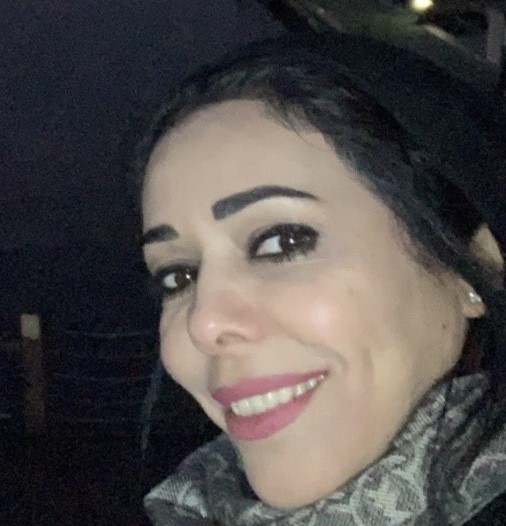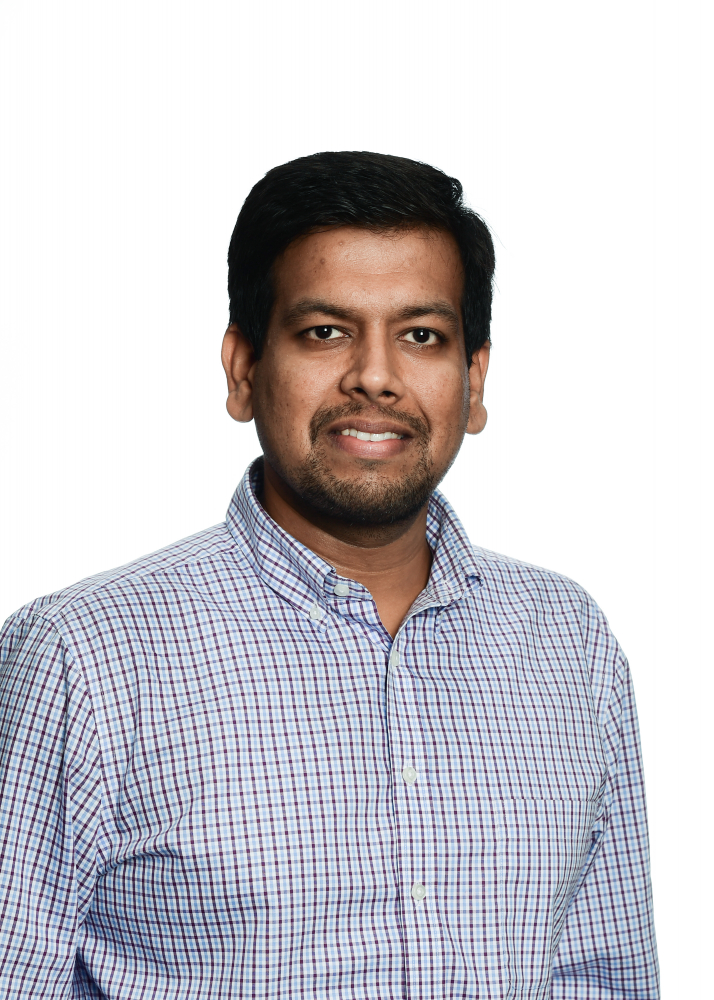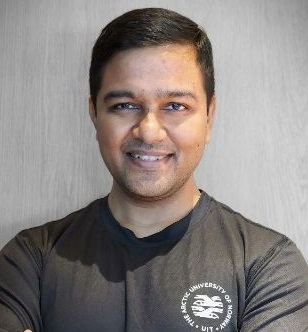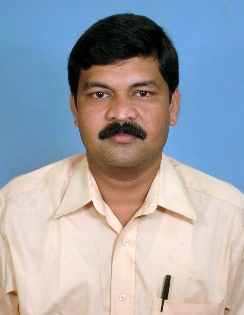




National Institute of Technology, Kurukshetra

The Institution of Electronics & Telecommunication Engineers

University College of London, United Kingdom (UK)

Emlyon Business School, France

CSUSB, USA
The proposed conference ICDLAIR 2023 represents key ingredients for the 5G. The extensive application of AI and DL is dramatically changing products and services, with a large impact on labour, economy and society at all. ICDLAIR 2023, organized by NIT Kurukshetra, India in collaboration with International Association of Academicians (IAASSE), UCL-UK , Emlyon Business School France and CSUSB USA, aims at collecting scientific and technical contributions with respect to models, tools, technologies and applications in the field of modern artificial intelligence and robotics, covering the entire range of concepts from theory to practice, including case studies, works-in-progress, and conceptual explorations.
Through sharing and networking, ICDLAIR 2023 will provide an opportunity for researchers, practitioners and educators to exchange research evidence, practical experiences and innovative ideas on issues related to the Conference theme. ICDLAIR 2023 intends to publish the post-conference work in order to give authors the opportunity to collect feedback during the presentation.
Read More
Dr. Liqaa Nawaf is a senior lecturer and research leader in the field of cyber security. She is Programme Director for Postgraduate Studies with the School of Technologies at Cardiff Metropolitan University (CMU) and a co-leader of Cyber security and Information Networks Centre (CINC). Dr Nawaf is an expert in networks, artificial intelligence, and cyber security. She is particularly interested in understanding how artificial intelligence techniques could be used to support in distributed systems and cyber security, and the use of these techniques in various application areas. Dr Nawaf is the founding member of Women in Cyber (WiCys) society at CMU. Dr Nawaf is active member of Women in Cyber Wales Cluster in UK. As one of the women members of CMU staff working in the discipline of cyber security, Dr Nawaf has been successful in securing a number of externally funded projects exploring different aspects of cybersecurity, the latest project is Partnership for Education and Research (PER) Programme for Women in Cyber Funded by British Council UK -Saudi Challenge Fund programme. As well as securing competitive CMU internal funding from the Global Academies Research and Innovation Development Fund. She is a strong female mentor in her department advising on research projects and internship projects relating to Information Technologies and Cyber Security as Programme Director for the Master of Science degree. Dr Nawaf supervises a number of PhD students in the areas of AI, Networks and Cyber Security
Title: Implementation of AI Technologies to Optimize Cyber Security.
Abstract: Identification of cyber threats is crucial and significant to determining the substantial security techniques and approaches. This research paper illustrates a brief discussion of cyberspace challenges and threats in the disruptive era with comprehensive approaches to mitigate the risk of cyber threats. This research paper aims to provide beneficial approaches on how to handle cyber threats in detail. Threats and attacks may cause in the absence of legislation, ethical standardization, support system, and lack of access control. The governance system will put a lot of effort into communicating and enforcing the principles of security to moderate the risk. The metaheuristic algorithms are stimulated by the human brain, so implementing Artificial Intelligence (AI) assists the Neural Network to mimic the behavior of the human brain to predict significant outcomes. In this paper, the author investigates and analyses the rapid growth of cyber threats to outline the solutions.

Mr Sunil is the Additional Director General of India’s Public Service Broadcaster Prasar Bharati with its two verticals - Doordarshan India (DDI) for TV and All India Radio (AIR) for Radio. At the corporate level ,he is currently heading the Technology Division, International Relations, Design and Planning Wings of Terrestrial Transmitters , TV Studios & Satellite division, Global & Domestic Distribution. He has headed the country’s and Direct to Home (DTH) Divisions of DDI, Marketing division and the Central Archives division of the corporate. Mr. Sunil is the Vice President of ABU Malaysia , President of Broadcast Engineering Society of India (BES) and Governing Council Member of Institution of Electronics and Telecommunication Engineers (IETE) having 27000 members across the country and globe. With over a three decades of experience in the field of Broadcast Engineering, Mr. Sunil has essentially worked with installation of Broadcasting Projects in India and overseas. He has been a Member of the Technical Advisory Group of ICC ( INSAT Coordination Committee) of the Indian Space Research Organisation (ISRO) ,is the winner of the Asia Pacific Broadcasting Union (ABU) Broadcast Engineering Excellence Awards for 2018, is currently the Vice Chairman of the Technical Bureau of the Asia Pacific Broadcasting Union . /
.
Puneet Goyal received the B.Tech. and M.Tech. degrees (dual degree) in 2006 in Computer Science and Engineering from IIT Delhi, where he also received Institute Silver Medal in 2006. He received his Ph.D degree in 2010 in Electrical and Computer Engineering from Purdue University, USA. Then, he served as Senior Member of Technical Staff at AT&T Labs, San Ramon, CA for some time, before returning to India few years back. Currently, he is serving as Assistant Professor at IIT Ropar. He has teaching experience for around 5 years and he has guided many students to perform remarkably well in several reputed technical contests (like Microsoft Imagine Cup National Finals 2014). His research area is multidisciplinary which includes electronic imaging systems, image processing, security and analytics. He has been already granted two U.S. Patents, and has also recently filed couple of patents in India and abroad. He is member of IEEE and also an active reviewer for many reputed journals including IEEE Transactions on Image Processing.

Maanak Gupta is an Assistant Professor in the Department of Computer Science at Tennessee Tech University where he is director of the Applied and Basic Cyber Security (ABCyS) laboratory. He received his Ph.D. in Computer Science from the University of Texas at San Antonio (UTSA), under the supervision of Prof. Ravi Sandhu in December 2018, and has worked as a Postdoctoral Research Fellow at the Institute for Cyber Security, UTSA. He is also an associated faculty with the CEROC: Cybersecurity Education, Research & Outreach Center at Tennessee Tech. His primary area of research includes security and privacy in cyber space. In particular, he is interested in studying scientific foundational aspects of access control and their applications in real world 21st century technologies including cyber physical systems, precision agriculture, smart cars, Internet of Things, cloud computing, and Big Data. He is also interested in AI and machine learning driven security solutions including malware analysis and classification for Cloud IaaS. His scholarly work is regularly published at top peer-reviewed security venues including ACM SIGSAC conferences and refereed journals. He was awarded the 2019 computer science outstanding doctoral dissertation research award from UT San Antonio. His research has been funded by the US National Science Foundation (NSF), NASA, US Department of Defense (DoD) and private industry. He holds an MS in Information Systems from Northeastern University, Boston, USA

Dilip K. Prasad (IEEE Senior Member) is an associate professor at the Department of Computer Science, UiT The Arctic University of Norway. He received the Ph.D and B.Tech degree in Computer Science and Engineering from Nanyang Technological University, Singapore and Indian Institute of Technology (Indian School of Mines), Dhanbad, India, respectively. He was a senior research fellow at Nanyang Technological University, Singapore from 2015-2019 and research Fellow at National University of Singapore from 2012-2015. Prior to Ph.D., he has worked for 5 years with IBM, Infosys, Mediatek and Philips.He has been selected as a Fellow for Kauffman Global Scholarship in 2011, in which he was trained in entrepreneurship at Harvard University, MIT, Stanford University and the Kauffman Foundation. He has been awarded with Rolls-Royce Inventer Award in 2016. He has published 130+ internationally peer-reviewed research articles and patents. He is a co-founder of Bio-AI lab at UiT. Since 2019, he has secured ~21 million Euro research and innovation grant as a PI/co-PI from European Union, Research Council of Norway. His research interest in sustainable AI, Scalable AI, Interpretable AI and application of AI for life sciences. He is a co-author of the book titled "Interpretability in Deep Learning", Springer, 2023.

Dr. Maheshkumar H. Kolekar is working as Associate Professor in Dept of Electrical Engg at Indian Institute of Technology Patna, India. He received the Ph.D. degree in Electronics and Electrical Communication Engg from the IIT Kharagpur in 2007. From 2008 to 2009, he was a Post-Doctoral Research Fellow with the Department of Computer Science, University of Missouri, Columbia, USA where he worked on intelligent video surveillance systems. During May to July 2017, he worked as DAAD fellow in Technical University Berlin where he worked on EEG signal analysis using machine learning and deep learning. He has authored a book titled, "Intelligent Video Surveillance Systems: An Algorithmic Approach", CRC Press, Taylor and Francis Group, (2018). He served as a Head, Dept of Electrical Engg, IIT Patna in 2013 for one year and Head of the Center (HoC) for Advanced Systems Engineering, IIT Patna during 2014 to 2016 for two years. He served as Professor-in-charge, National Knowledge Network of IIT Patna during August 2017 to Sept 2019. He has successfully completed R and D project sponsored by Principal Scientific Advisor to Govt of India on abnormal human activity recognition.
July 31, 2023
October 25, 2023
November 10, 2023
November 20, 2023
December 07-09, 2023
January 05, 2024
August-September 2024
Post conference, proceedings will be made available to the following indexing services for possible inclusion:



